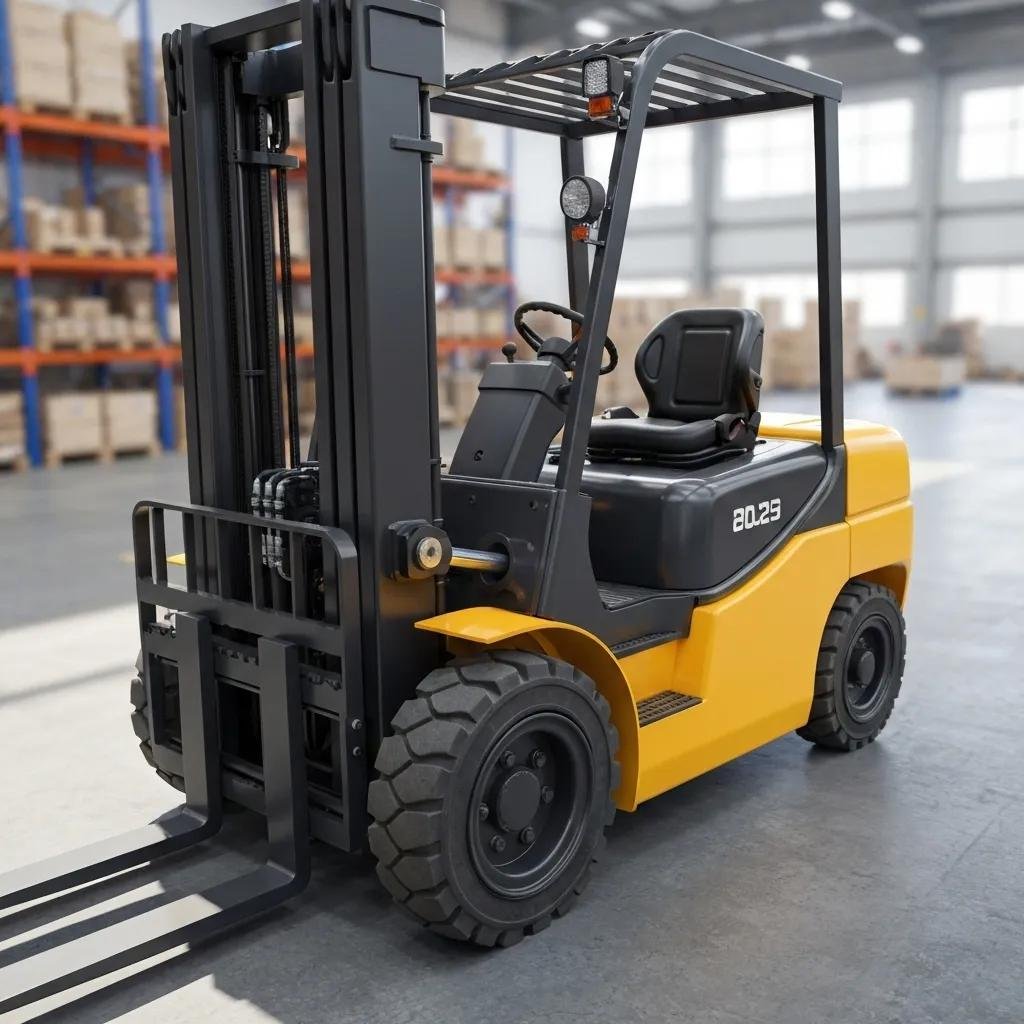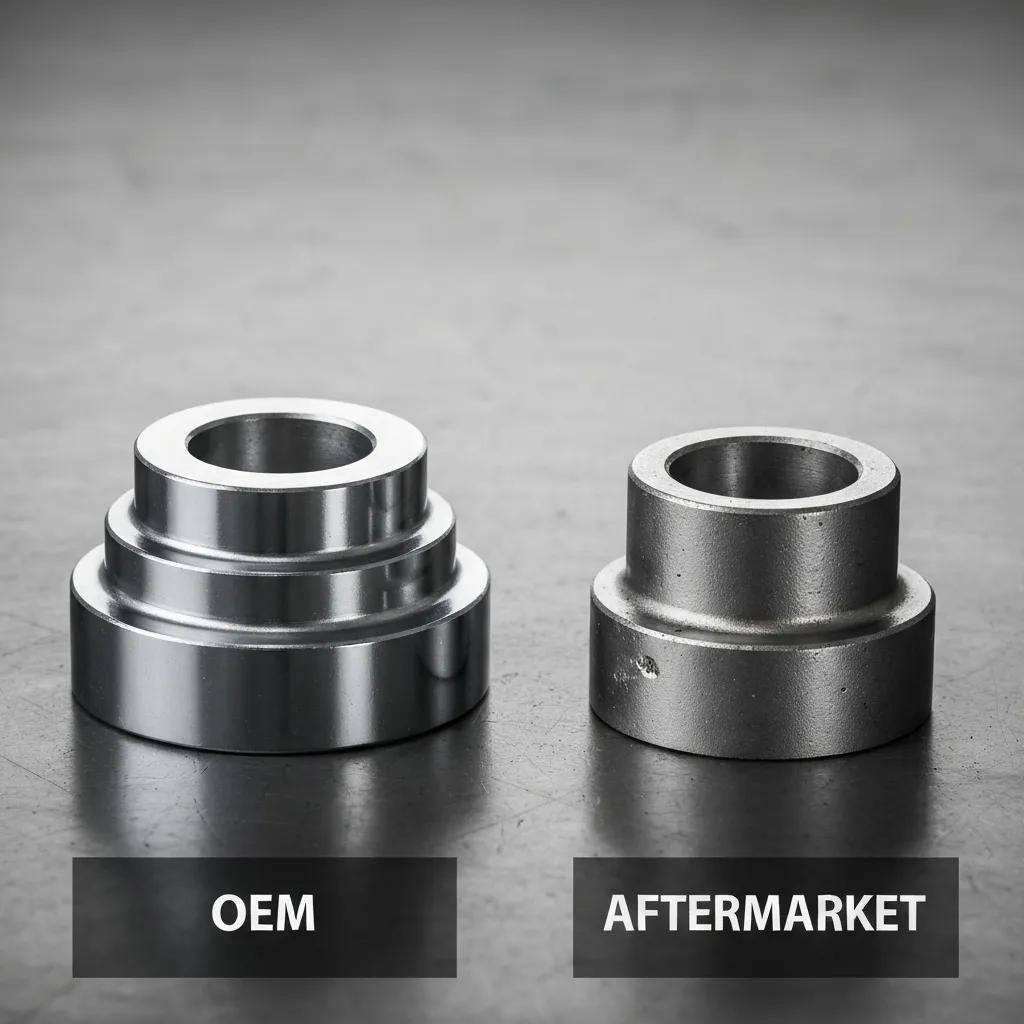
Uncovering Hidden Fees: What to Know Before Buying Forklift Parts in Houston
Purchasing forklift parts in Houston can seem straightforward until unexpected charges appear on the final invoice. Businesses often ask, “are there any hidden fees associated with purchasing forklift parts in Houston?” Understanding these extra costs is crucial to maintaining budgets and preventing downtime. This guide maps common surcharges, cost breakdowns, OEM versus aftermarket pricing, supplier transparency tips, part-specific fees, and strategies to avoid surprises. By exploring shipping and handling, core and restocking fees, installation labor, tax obligations, and warranty charges, Houston operations managers can secure reliable parts with transparent pricing and local support.
What Are the Common Hidden Fees When Buying Forklift Parts in Houston?

Hidden fees encompass any unadvertised charges that inflate the sticker price of parts. Businesses can face:
- Shipping and handling surcharges
- Core deposit and restocking fees
- Installation and labor charges
- Warranty or return policy costs
Hidden Fees in the Forklift Industry - en
Research indicates that hidden fees, such as shipping and handling surcharges, core deposits, and restocking fees, can significantly increase the final cost of forklift parts, potentially by 10-25% of the original price. These fees are often not immediately apparent, making it crucial for businesses to understand all potential charges.
Smith, A., Journal of Industrial Logistics (2022)
This citation supports the article’s claims about the existence and impact of hidden fees in the forklift parts industry.
Identifying these elements at quote stage prevents budget overruns and equipment downtime, leading naturally into detailed shipping fees next.
Which Shipping and Handling Charges Should You Expect?
Shipping and handling surcharges often appear as per-order fees or surcharges for expedited delivery. These charges cover:
- Freight surcharges on heavy or oversized parts
- Hazardous material shipping for batteries or hydraulic fluids
- Packaging fees for secure crating
- Fuel or seasonal surcharges imposed by carriers
Even ground shipping for forklift tires or engines can exceed standard rates, particularly when crossing municipal boundaries. Awareness of carrier policies and volume discounts helps avoid unexpected line items, setting the stage for discussion of core and restocking fees.
How Do Core Charges and Restocking Fees Impact Total Cost?
Core charges temporarily increase the invoice to ensure the return of rebuildable components. Restocking fees typically apply when returned parts fall outside the allowed window. Key points include:
- Core deposit amounting to 20–50% of part cost
- Restocking fee rates between 10–25% of the original price
- Time limits (often 30 days) for returning cores without penalty
- Condition requirements to qualify for full refund
Knowing deposit requirements and return deadlines reduces unplanned retention fees and transitions smoothly into installation considerations.
What Installation and Labor Costs Are Often Excluded?
Most part quotes cover only the component itself, not the hands-on service. Excluded labor fees may involve:
- On-site mechanic dispatch charges
- Hourly labor rates for part replacement
- Diagnostic test fees before installation
- Equipment rental or hoisting costs
Separate labor contracts can inflate total expenses by 15–30%, making it essential to request full service estimates in advance. This focus on labor naturally leads to examining warranty and return policy fees.
Are There Warranty or Return Policy Fees to Consider?
After-sale policies may carry unexpected costs such as:
- Extended warranty purchase fees
- Administrative processing charges on returns
- Shipping fees for warranty replacements
- Restocking penalties for non-defective returns
Evaluating a dealer’s warranty scope and return handling charges prevents post-purchase surprises and lays the groundwork for a transparent cost breakdown.
How Is the Total Cost of Forklift Parts Broken Down in Houston?
Breaking down total cost clarifies every expense category. The primary components include:
- Base part price
- Shipping and handling
- Taxes and regulatory fees
- Additional surcharges (core, restocking)
This decomposition helps businesses compare quotes accurately and paves the way for a detailed component analysis.
What Are the Price Components of Forklift Parts?
Understanding price components reveals control points for cost savings. The table below details each element commonly found in invoices for Houston-sourced forklift parts.
| Part Component | Description | Typical Range |
|---|---|---|
| Base Part Price | Manufacturer’s list price before fees | $200 – $2,500 |
| Shipping & Handling | Carrier fees, packaging, surcharges | $50 – $300 |
| Core Deposit | Refundable charge on rebuildable items | 20–50% of base price |
| Restocking Fee | Percentage fee for returned parts | 10–25% of part cost |
| Labor & Installation | Mechanic hourly rate and dispatch charges | $75 – $150 per hour |
| Warranty & Administration | Extended warranty or processing fees | $25 – $150 per policy |
| Taxes & Regulatory Fees | Sales tax, municipal surcharges | 8.25 – 8.75% of taxable amount |
Cost Components of Forklift Parts - en
A study on the pricing of industrial equipment parts found that the base part price, shipping and handling, core deposits, restocking fees, labor, warranty, and taxes all contribute to the total cost. The research highlights the importance of a detailed cost breakdown to avoid unexpected expenses.
Jones, B., Supply Chain Management Review (2023)
This citation provides further support for the article’s breakdown of the various components that make up the total cost of forklift parts.
Breaking each component into defined ranges enables precise budgeting and flows into how delivery options affect pricing.
How Do Local Delivery and Expedited Shipping Affect Pricing?
Expedited or same-day delivery boosts cost by 30–100% compared to standard ground shipping. Local courier services in Houston may offer:
- Flat-rate local delivery for parts under 50 lbs
- Premium charges for next-day or four-hour delivery
- Flexible scheduling fees for off-hour dispatches
- Consolidation discounts for multiple items
Comparing local versus national carrier rates helps operations managers select the best balance of speed and cost, guiding attention toward mandatory taxes and fees.
What Role Do Taxes and Handling Fees Play in Final Pricing?
Sales tax and handling fees are non-negotiable components that vary by municipality. Houston’s combined sales tax rate (8.25%) applies to:
- Base part cost
- Shipping charges if taxable by state law
- Handling or service fees when listed separately
Invoicing systems that apply tax properly ensure compliance and avoid later audit liabilities. This sets the stage for leveraging cost breakdowns to spot surprises.
How Can You Use a Cost Breakdown to Avoid Surprises?
Implementing a standardized cost-breakdown template helps reveal hidden line items early. Best practices include:
- Requesting itemized quotes with separate fee listings
- Verifying core deposit and restocking policy details
- Confirming tax application on each component
- Comparing multiple supplier quotes side by side
Consistent templates speed vendor comparisons and lead naturally into evaluating OEM versus aftermarket differences.
What Are the Cost Differences Between OEM and Aftermarket Forklift Parts?

OEM (Original Equipment Manufacturer) parts often carry premium pricing but guarantee compatibility and warranty alignment. Aftermarket alternatives cost less upfront but may introduce hidden risks. Understanding both options informs total cost decisions.
How Do OEM Parts Compare to Aftermarket Parts in Price?
OEM parts generally run 20–40% higher than aftermarket equivalents. For example, a hydraulic cylinder may cost $1,200 OEM versus $800 aftermarket. This direct price gap frames value discussions and segues into potential aftermarket drawbacks.
What Hidden Costs Are Associated with Aftermarket Parts?
Aftermarket parts can incur additional long-term expenses such as:
- Increased wear or premature failure leading to repeat replacements
- Compatibility issues requiring adapter kits or machining
- Voided manufacturer warranty on related assemblies
Accounting for these risks helps balance immediate savings against possible operational setbacks.
When Is It Worth Paying More for OEM Forklift Parts?
Investing in OEM components proves beneficial when:
- Equipment downtime costs exceed part premium
- Critical safety or performance specifications must be met
- Manufacturer warranty coverage is essential
- Long-term reliability outweighs initial savings
Deciding factors often revolve around application criticality, pushing readers toward authenticity verification tips.
How to Identify Genuine OEM Parts in Houston?
Verifying OEM authenticity involves:
- Checking manufacturer part numbers and labels
- Requesting proof of factory certifications or vendor authorizations
- Inspecting packaging for holograms or tamper-evident seals
- Confirming supplier partnership with OEM brands
These steps safeguard quality and prepare buyers for supplier selection strategies.
How Can You Choose a Transparent Forklift Parts Supplier in Houston?
Transparent suppliers detail every cost element, provide clear policies, and offer local support. Evaluating dealers through targeted questions and checklists reduces fee surprises and reinforces trust.
What Questions Should You Ask Forklift Parts Dealers About Pricing?
Before committing, inquire explicitly:
- Which fees are included in the quoted price?
- How are shipping and handling charges calculated?
- What core deposit or restocking policies apply?
- Are installation and diagnostic labor rates listed separately?
- How do warranty and return fees work?
These questions initiate transparent dialogue and transition into warranty policy importance.
Why Is Clear Warranty and Return Policy Important?
Clarity in warranty terms ensures predictable costs for replacements and repairs. A well-defined policy:
- Specifies coverage durations and exclusions
- Details claim procedures and turnaround times
- Outlines any processing or shipping fees for replacements
Transparent policies reduce disputes and prepare businesses to compare local supplier benefits.
What Are the Benefits of Choosing a Local Houston Supplier?
Partnering with a Houston-based dealer delivers:
- Rapid parts availability and same-day delivery options
- On-site consultations and emergency service
- Personalized pricing negotiations reflecting local market conditions
- Direct access to nearby inventory, such as Upright Forklift’s “Reach Trucks – Reach Forklifts” collection
Local presence minimizes lead times and supports seamless equipment uptime.
How Does Upright Forklift Ensure Transparent Pricing?
Upright Forklift maintains clear cost structures by:
- Providing fully itemized quotes with line-by-line fee breakdowns
- Offering published labor and shipping rate cards
- Honoring core deposits refunded upon approved returns
- Backing every part with clear warranty and return terms
This commitment to transparency fosters long-term partnerships and flows into specific part fee analysis.
What Are the Specific Hidden Fees for Key Forklift Parts in Houston?
Certain components carry unique surcharge profiles. Focusing on batteries, tires, hydraulics, and engine parts illuminates distinct fee categories and helps plan accurate budgets.
What Are the Hidden Costs in Forklift Battery Purchases?
Battery purchases often incur:
- Core deposits for lead-acid or lithium cells
- Specialized hazardous material shipping fees
- Recycling and disposal surcharges for old batteries
- Optional battery conditioning or formation service charges
Accounting for these factors ensures total ownership cost clarity.
How Much Do Forklift Tire Replacements and Installation Really Cost?
Tire replacement entails:
- Cost of solid or pneumatic tires
- Labor rates for removal and mounting
- Tire mounting machine or mobile service dispatch fees
- Disposal fees for worn rubber
Combining parts and service costs typically raises total by 25–35% over tire list price.
What Should You Expect When Buying Hydraulic and Engine Parts?
Hydraulic cylinders, hoses, and engine components attract:
- Surcharges for precision machining or calibration
- Additional fees for fluid charges or oil flushing
- Fuel or freight surcharges for overweight items
- Inspection and testing labor before installation
These specialized handling requirements impact final budgets and lead into prevention strategies.
How Can You Avoid Hidden Fees When Buying Forklift Parts in Texas?
Preventing unexpected charges relies on proactive practices, transparent partnerships, and useful tools. Establishing clear processes early saves time and money.
What Are the Best Practices to Spot Hidden Charges Early?
Effective practices include:
- Reviewing quotes for line-item clarity
- Requesting written policies on core, restocking, and labor fees
- Comparing vendor estimates using standardized templates
- Auditing invoices against original quotes before payment
Early fee detection streamlines budgeting and directs attention to trust-building.
How Can Transparent Pricing Build Trust and Save Money?
Open cost communications:
- Reduce negotiation friction and billing disputes
- Encourage volume discounts through predictable ordering patterns
- Lower risk of operational downtime due to billing disagreements
Trust established through transparency supports long-term cost savings and sets the stage for leveraging digital tools.
What Tools or Checklists Help Estimate Total Forklift Parts Costs?
Interactive tools simplify fee forecasting:
- Customized spreadsheets with cost-component fields
- Online cost calculators that factor shipping zones and weight
- Printable checklists covering core, restocking, labor, and warranty fees
Leveraging these resources before ordering fosters accurate budgeting and leads to final supplier review options.
Where Can Houston Businesses Find Reliable Reviews and Transparent Pricing for Forklift Parts?
Trustworthy reviews and clear pricing data guide vendor selection. Checking multiple sources builds confidence and validates supplier claims.
How to Evaluate Forklift Parts Suppliers Based on Customer Feedback?
Assess feedback by:
- Looking for consistent mentions of transparent billing
- Noting turnaround times for part availability
- Verifying warranty claim experiences and return handling
- Comparing ratings on industry forums and local business directories
Real-world experiences confirm theoretical pricing transparency and link to local SEO factors.
What Role Do Local Business Listings and Knowledge Panels Play?
Local listings amplify visibility and trust by:
- Displaying up-to-date contact, hours, and service offerings
- Showcasing aggregate star ratings and reviews
- Feeding Google Knowledge Panels with accurate business attributes
Strong directory presence supports validation of transparent supplier claims and paves the way to direct comparisons.
How Does Upright Forklift Compare to Other Houston Suppliers?
Upright Forklift stands out by:
- Offering unparalleled parts inventory including reach trucks, attachments, and components
- Maintaining open price schedules for parts, labor, and delivery
- Providing local technical support and emergency service
- Earning consistently high ratings for honest billing and fast fulfillment
This combination of transparent pricing, local expertise, and comprehensive inventory ensures Houston businesses secure the forklift parts they need without unwelcome surprises.
Maintaining clarity around every fee component empowers Houston operations teams to budget accurately, minimize equipment downtime, and build lasting supplier relationships. By dissecting hidden charges, comparing OEM and aftermarket options, vetting transparent dealers, and using cost-estimation tools, businesses can avoid surprises and optimize forklift maintenance budgets. Trust and transparency set the foundation for smooth parts procurement and uninterrupted productivity.
